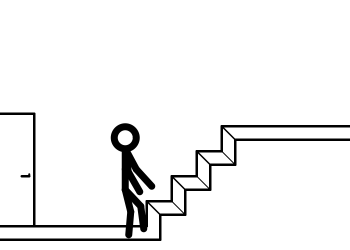Compare courses from top Australian unis, TAFEs and other training organisations.
Got A Job Interview? Read This.
Want to stick out from your job interview competition? Then you need to read this! Julia shares her top interview tips that will boost your chances of transforming that interview into a letter of offer.
Julia Watters
Jun 12,2014
I’ve been through my fair share of interviews, from my first job in high school at Target right through to my current role. I’ve experienced one-on-one interviews, panel interviews, phone interviews and even been on the other side of the table on plenty of occasions. Suffice it to say, when it comes to interviews, I’ve served my time.
With that in mind, here are my top eight tips on how to navigate the interview process like a boss:
Do your homework
Just because you read an overview of the role description when applying for the job, doesn’t mean you’re prepared for the interview. Check out the company’s website, Facebook, LinkedIn and whatever else you can lay your digital paws on. This way, you’ll be able to anticipate questions better and tailor your responses to the needs of the company, singling out the best of your own experiences.

Getting ready
Choose smart clothes that project confidence and responsibility. Even if you think the company is a hipster haven, avoid denim or statement tees, as your potential employer might interpret it as a nonchalant approach to the role you’re interviewing for. There are plenty of articles out there with opinions on which colours project ‘leadership’ or ‘creativity’ in an interview, but you’re better off sticking with neutral tones and colours instead of trying to turn your outfit into a mood board.

Arriving
Make sure you give yourself plenty of time to arrive, check your appearance in a nearby bathroom and walk into the interview room without the fear of some foreign object on your face or pre-interview snack in your teeth. It’s also a good idea to estimate your travel time, account for any traffic and source the closest parking options before the day of your interview. If you overestimate and arrive ridiculously early, find a nearby café and kill some time, as you’ll likely just make the receptionist feel awkward if you sit there for an hour while he or she repeatedly asks you if you’re sure you don’t want something to drink.

Making a good first impression
The first thing you need to do when you walk into the room is to shake the hand of everyone at the table. I don’t care if your interview panel could comfortably make up a basketball team, with subs – you shake those hands. A handy tip for new players is to repeat back names when interviewers introduce themselves, such as ‘hi John’ or ‘nice to meet you Laura.’ This will help you remember names, and you’ll be able to use them during your interview for a more personal approach.

Answering questions
You may think that you’ve got this, given that they are asking you interview questions about your life, but don’t be arrogant. Brush up on your work history, reflect and prepare some examples of achievements you think will be relevant to the role you’re interviewing for. You’ll inevitably be asked about your previous work accomplishments, so being able to recall situations that are relevant and well thought out (without the awkward silence or time-buying sip of water) will have your interviewers putting a big fat tick next to your name.

Before you go
Most interviewers will ask you at the end of an interview if you have any questions for them. Don’t forget that the interview process is a two-way street! Their hands may not be shaking as much when they reach for their glass, but if you’re an ideal candidate, your interviewer will want to make a good impression on you too. Prepare some questions ahead of time, preferably while you’re doing your research on the company. If these are answered during the course of the interview and you have no further questions to add, don’t panic. Just let your interviewer know that all your questions have been resolved and you feel confident that you have all the information you need. Don’t forget to shake hands (yes, all of them) and thank all of your interviewers for their time. A simple ‘I look forward to hearing from you’ will show interest, without coming across as overconfident.

Follow up
It’s not a faux pas to follow up your interview with an email. In fact, a brief ‘thanks again for the opportunity’ style email will show professionalism, as well as your enthusiasm for the role. If, however, you’re stalking down a company weeks after an interview when you were told only the successful candidates would be notified, then you need to step away from the keyboard. Either way, there are plenty of job opportunities out there and it’s important to make sure it’s the right fit for both employer and employee. If you are unsuccessful, be sure to request feedback so you can improve, where necessary, for your next interview.

Keep up
This is the one that everyone forgets! If you’re getting knocked back because of your skills, then it’s probably time to swap job enquiries for course enquiries. The rate of change in many industries, especially technological progress, can make it hard to stay on top of the game. Constantly refreshing your skills will save you from finding yourself at the bottom of the recruitment food chain, and from receiving a whole lot of letters that start with the word ‘unfortunately…’

The job-seeking game can be tough, but our career resources will help you play to win.
Career FAQs has got you covered from job-hunting tips and sample resumes and cover letters, right through to the interview stage.
About the author
Julia Watters covers topics in career development, educational guidance, and workplace success in her Career FAQs articles.
